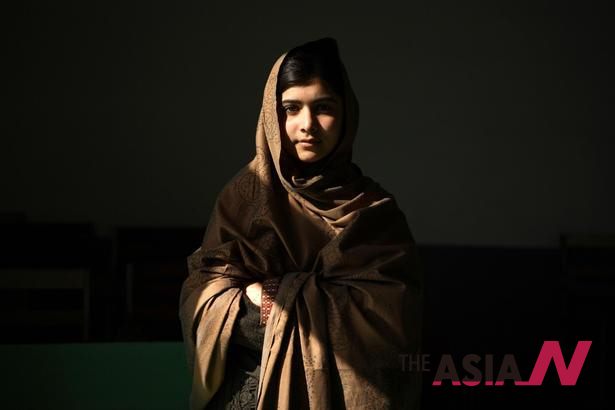Malala, the girl who stood up against Taliban
Malala Yousafzai is your average 15-years-old girl; she plays with her little brothers, watches cable TV, dreamt of being a doctor and loves going to school. All of that change with her first blog post associated with BBC Urdu, she begins her trip to politics, which eventually led to an assassination attempt by Taliban, whom she repeatedly criticized.
It all started when Malala started writing for BBC, in a blog named “Gul Makai/Corn Flower” so as not to expose her and risk her life. She started writing at the age of 11, about how it’s hard for girls to get proper education, how Taliban keeps terrorizing them, how she can’t be sure that she’s going to school the next day.
| “I had a terrible dream yesterday with military helicopters and the Taliban. I have had such dreams since the launch of the military operation in Swat. My mother made me breakfast and I went off to school. I was afraid going to school because the Taliban had issued an edict banning all girls from attending schools. Only 11 students attended the class out of 27. The number decreased because of Taliban’s edict. My three friends have shifted to Peshawar, Lahore and Rawalpindi with their families after this edict. On my way from school to home I heard a man saying ‘I will kill you’. I hastened my pace and after a while I looked back if the man was still coming behind me. But to my utter relief he was talking on his mobile and must have been threatening someone else over the phone.”Malala Yousafzai, 3 January 2009 BBC blog entry |
This was one of many excerpts taken from her blog which remained anonymous until she was invited to many events, accompanying her activist father, and little by little she became known.
Taliban had already banned girls from going to their schools and even blown several schools as to frighten people. Malala was there when all of this happened and was reporting that at her blog. Even when some peace was made between the military and Taliban and girls were allowed to go to school, more than half of the girls didn’t return, even Malala’s little brother was afraid to go to school, afraid that he would be kidnapped.
Even when Malala finished her BBC diary, that wasn’t the end of her, a New York Times documentary was filmed about her. At that time, inspired by her activist father, Malala began to have a new dream. To become a politician is what she wanted to “save her country” as she says.
She then began to –officially- take part in many events, firstly when she became Chair of District Child Assembly Swat established by the support of UNICEF. She also began participating in the Institute for War and Peace Reporting’s “Open Minds” project, which brought journalism training and discussions of current affairs to 42 schools in Pakistan. The program also edited their work and put them in touch with local newspapers. Malala’s own success had inspired other young people, and many of those approaching the program were girls.
Later in April 2010, she started to organize “Malala Education Foundation” which would help poor girls to go to school. Besides having been awarded several awards like, Pakistan’s first National Youth Peace Award, also being nominated for International Children’s Peace Prize, to be the first Pakistani girl to be nominated for that award. She also had a school renamed after her, “Malala Yousafzai Government Girls Secondary School”.
As for the assassination attempt, it was clear that her popularity was going up and her criticism on Taliban didn’t stop. Then came that doomed day when Taliban gunman went to her school and shot her with two bullets, one in her head, another in her neck, as to silence her. Also shooting two of her friends, Taliban took responsibility later for the attack, and stated that “if she survives the attack, we will kill her”.
She’s been hospitalized since Oct. 9, 2012 till now. She’s showing slight progress and her condition is getting better but still she’s not out of the danger zone.
The attack created a huge rage around the world, many disapproved of the attack, and a group of 50 Islamic clerics in Pakistan issued a fatwa against the Taliban gunman who attacked her (not Taliban itself, though). US president Barack Obama, Hilary Clinton, Madonna, Woody Allen are some of the names that made public reactions on Malala being attacked.
Protests around Pakistan broke out, and “I Am Malala” movement was created and United Nations made a petition using that slogan to demand that some action would be taken against Taliban. United Nation’s petition included: Asking Pakistan to agree to plan to deliver education for every child, all countries to outlaw discrimination against girls.
Malala isn’t the first or the last that would be attacked by those people who claim to be “the voice of Islam” when they have nothing to do with Islam. Salute to the brave Malala, she needs our prayers.










She is courage girl in the world.